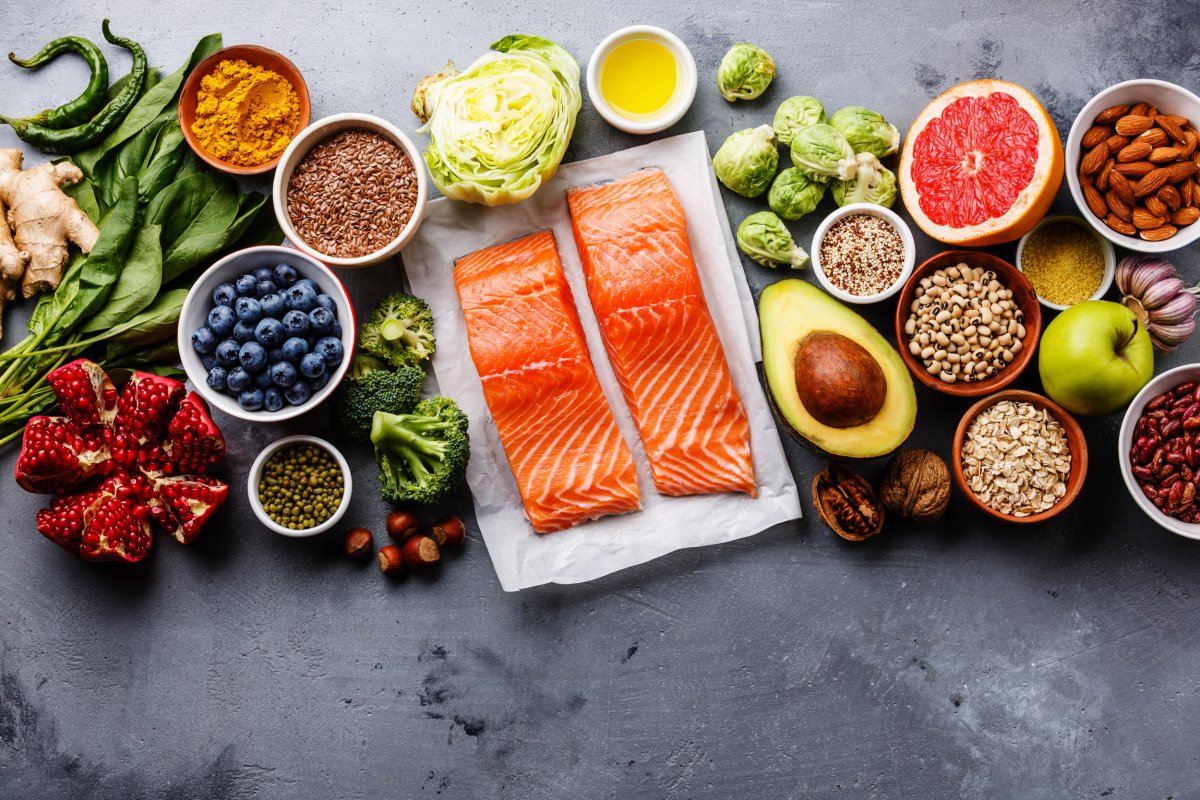There is plenty of conflicting advice for how to keep our hearts healthy, but this is how a Florida-based heart surgeon eats to protect his.
Dr. Tom C. Nguyen—chief medical executive of the Baptist Health Miami Cardiac and Vascular Institute, and a global leader in minimally invasive heart surgery—told Newsweek: “Heart disease is a leading cause of death worldwide; diet plays a big part in that.
“A diet rich in vegetables, wholegrains, lean proteins, fruits, and healthy fats helps protect against heart disease.”
He said he strived to eat non-processed and organic foods as much as possible; the foods usually found around the edges of grocery stores.
On an average day, Nguyen said he often ate “a light breakfast with protein, grains, some fruit and a cup of coffee.” This could include a couple of hard-boiled eggs, without the yolks, and some oatmeal.
“If I have time, I try to have a bigger lunch with chicken and vegetables,” he said. “In the evenings, I’ve found myself eating earlier and having lighter meals.” Studies have shown that eating more of our calories earlier in the day may bring health benefits.
To improve his cardiovascular health, Nguyen said he tried to “avoid sugar as much as possible,” as well as focusing on a diet “rich in fruits and vegetables like berries and leafy greens.”
He included wholegrains, such as brown rice, he said, and healthy fats in avocado, olive oil, and nuts. Nguyen said he got omega-3 from fatty fish, such as salmon, and fiber from beans and lentils.
He also said he enjoyed small amounts of dark chocolate, drank green tea for antioxidants, and limited processed foods, sugary drinks and excess salt—all “to support heart health.”
“I also think it’s important not only what you eat, but how you eat,” said Nguyen. “It’s important to slow down while eating to give your body time to register how much you’ve eaten.
“Most of the time, we eat until we’re 100 to 200 percent full, but there’s good data to suggest that eating until you’re 80 percent full increases life span.”

Stock image of a selection of healthy food. Fish, fruit, vegetables, seeds, beans, cereals and leafy vegetables all help to keep your heart in good shape.
Lisovskaya/Getty Images
Saturated fat is a much-discussed topic in nutrition, with some saying that eating it raises cholesterol and leads to heart disease, and others that it has been wrongfully demonized and that good quality sources of saturated fat are harmless. Nguyen belongs to the camp that is wary of too much saturated fat in the diet.
“Saturated fats are types of fats that are typically solid at room temperature and are found in animal products like butter, cheese, and red meat, as well as some plant oils like coconut and palm oil,” he told Newsweek.
“High consumption of saturated fats can raise the level of low-density lipoprotein cholesterol in your blood, which increases the risk of developing heart disease and stroke.”
Nguyen said that saturated fats had been linked to cancer, diabetes and Alzheimer’s, as well as heart disease.
“Replacing saturated fats with unsaturated fats, such as those found in olive oil, avocados, and nuts, can improve cardiovascular health and lower cholesterol levels,” he said.
In October, Newsweek interviewed another Florida-based heart surgeon, Dr. Philip Ovadia, who said that carbohydrates—not saturated fats—were to blame for poor heart health, and so he ate a mostly meat, low-carb carnivore diet. But Nguyen said he wasn’t a fan of the carnivore diet.
“The carnivore diet is composed mainly of animal products and contains high levels of saturated fats and cholesterol, which are all linked to an increase in heart disease,” said Nguyen. “When you take out the healthy foods, you also take out essential nutrients and fiber that are beneficial to heart health.”
Do you have a tip on a food story that Newsweek should be covering? Is there a nutrition concern that’s worrying you? Let us know via [email protected]. We can ask experts for advice, and your story could be featured in Newsweek.
